The excerpt below is from the FCA Handbook (Last updated version October 2024).
To read the Handbook, please go to: https://www.canada.fcaministers.com/handbook/
A minister should first be licensed, then after 2 years of active ministry as a licensed member, and if they meet the qualifications, they can be ordained.
6.2. Obtaining Membership as a Minister
The Articles of the Corporation refer to this class of members as Class A: Ministers.
6.2.1 Basic Requirements for FCA Membership
In order to be considered for membership, ministers must meet the following requirements. They must:
a. Be a member* of and/or have relationship with a qualified FCA endorsing team or endorsing church of which they are neither the senior pastor (or equivalent) nor the founder**
b. Be familiar with and agree with the Statement of Common Beliefs (see the Constitution)
c. Be familiar with and agree with the Statement of Ethics (see the Constitution)
d. Support the mission of the FCA
e. Adhere to the policies and procedures outlined in the constitution, by-laws, and handbook (although all of the handbook is important, members should be particularly familiar with Section 6)
f. Be one of the following:
▪ A Canadian citizen
▪ A permanent resident of Canada (as recognized by the Canadian government)
▪ A resident of Canada (not just visiting, but perhaps in transition to permanent residency or citizenship)
*Membership in the local church is defined by each respective local church.
**In some cases, a minister who is endorsed by their home church transitions into the
senior pastor role. In these cases, they should follow the procedures in section 6.7 to
find a new endorsing church
6.2.3. Licensing
Licensing is the primary method of joining the FCA as a member and is the process whereby the local church affirms one who demonstrates promise of effective ministry.
The following subsections on licensing are minimum requirements established by the FCA for licensing in the FCA. These must be met in order to be officially licensed. Beyond these, additional qualifications and the process required are determined by each local church, details of which should be available from their policies or by-laws. Licensing is often used as an interim qualification that allows a minister to practice ministry under supervision and tutelage of the endorsing church and its leadership, confirming the call of God to ordination.
6.2.3.1. Criteria for Licensing
The candidate for licensing must:
Meet the basic membership requirements in 6.2.1.
b. Be a baptized believer who confesses to the infilling of the Holy Spirit, membership within their local church, and a divine call to Christian ministry
c. Commit to lifestyle and ministry expectations as described in 1 Timothy 3:1–7, Titus 1:5–9, and 1 Peter 5:1–11
d. Demonstrate a lifestyle of faithfulness to biblical ethics, morality, values, and ongoing spiritual growth
e. Subscribe to the statement of beliefs of their home church, and be supportive of the church mission, vision, and values
f. Respect the leadership of their home church, and the same leadership must believe in the ministry potential of the candidate
g. Have completed a minimum of one year of formal Bible training through a biblical training institution approved by the local church, or a minimum of two years of biblical self-study resulting in the candidate demonstrating a coherent theology and the capacity and desire for ongoing growing knowledge of spiritual truth (see section 6.2.5 for more detailed requirements)
h. Demonstrate a willing servant spirit by his/her commitment to an active ministry of the church (Note: this requirement is not as strict on an ongoing basis for those who have transitioned to retirement)
6.2.4. Ordination
Ordination occurs after one has already been licensed (the only exception is a transfer of ordination). Ordination is the process whereby the local church affirms one who demonstrates an anointing and call of God to serve as a minister of the Gospel of Christ, who possesses the requisite gifts and abilities to carry out Christian ministry, and who is willing to be set apart to do so for an indefinite period of time.
Although membership and ordination are often linked, the ordination process is not the same as the FCA membership process (i.e. being officially licensed and thereby endorsed in the FCA by a local church). If one is a member of the FCA already, ordination does not change that membership status.
6.2.4.1. Criteria for Ordination
The candidate for ordination must:
a. Meet the criteria for licensing in 6.2.3.1 including the basic membership requirements
b. Have functioned satisfactorily as a licensed minister for a minimum of two years
c. Have completed a minimum of three years of formal Bible training through a biblical training institution approved by the local church, or a minimum of five years of biblical self-study resulting in the candidate demonstrating a solid and coherent theology and the capacity and desire for ongoing growing knowledge of spiritual truth (see section 6.2.5 for more detailed requirements)
d. Embrace a call of God to serve in Christian ministry for an indefinite period of time (Note: this requirement is not as strict on an ongoing basis for those who have transitioned to retirement)

